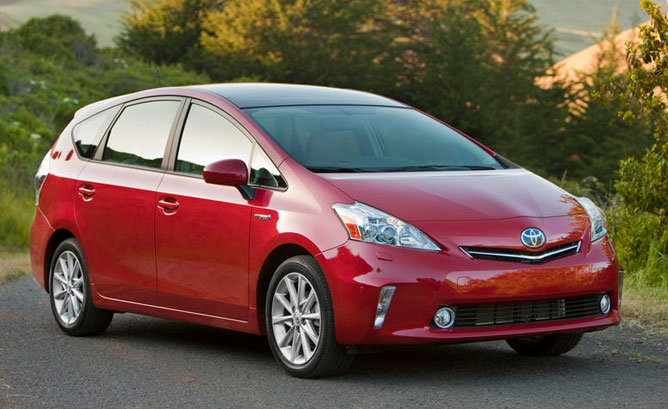The very modest success of Tesla Motors Inc. (NASDAQ: TSLA) has been used as proof that the electric car has come of age and demand for these autos will soar. Nothing could be further from the truth. Major car manufacturers have found they have to reduce the prices of their electric cars by thousands of dollars to bring buyers into showrooms. These vehicles have too many drawbacks for the average buyer, who is quite different from the very rich who can afford a Tesla.
Toyota Motor Corp. (NYSE: TM) has just lowered the price of its Prius Plug-in. Car companies do not do this kind of thing if models are selling well. The Japanese car company announced:
Toyota’s most advanced technology passenger car, the Prius Plug-in, will be available to customers at a substantially reduced price beginning with the 2014 model year.
Toyota has reduced MSRP on the 2014 Prius Plug-in Hybrid by over $2,000, making the starting MSRP $29,990 (excluding DPH). This price repositioning on the base Prius Plug-in Hybrid is not accompanied by any reduction in vehicle content.
“Price repositioning” is another way of saying deep discounts are the only way that Toyota can hope to sell the Prius Plug-in.
While skeptics about the usefulness and eventual popularity of electric cars had a setback because of the growing popularity of the Tesla, its sale of only a few thousand cars a quarter makes it nothing more than a toy for the wealthy. A fully loaded Tesla S has a sticker price just below $90,000. Buyers have to wait two or three months to get one. Tesla apparently does not make enough of them.
If any electric car aimed at the mass market should sell well, it is the Prius Plug-in. It is part of the fabulously successful Prius line, which made the hybrid car a mainstream product. But the brand association has not helped, nor has the fact that the Plug-in gets 95 mpg.
People are afraid of electric cars, not because they may be dangerous, but because they are impractical. A fully charged battery cannot take the car as far as a hybrid or gas engine can. There are not charging stations all across Ohio and Iowa. As a matter of fact, the car is not available in all 50 states.
Electric cars are not useful for the average American, who wants to simply get in a car and go, and sometimes go a long way. The driver of that old-world car can count on finding a gas station on hundreds of thousands of corners and a mechanic who can fix the car when it is broken.
It’s Your Money, Your Future—Own It (sponsor)
Are you ahead, or behind on retirement? For families with more than $500,000 saved for retirement, finding a financial advisor who puts your interest first can be the difference, and today it’s easier than ever. SmartAsset’s free tool matches you with up to three fiduciary financial advisors who serve your area in minutes. Each advisor has been carefully vetted and must act in your best interests. Start your search now.
If you’ve saved and built a substantial nest egg for you and your family, don’t delay; get started right here and help your retirement dreams become a retirement reality.
Thank you for reading! Have some feedback for us?
Contact the 24/7 Wall St. editorial team.




